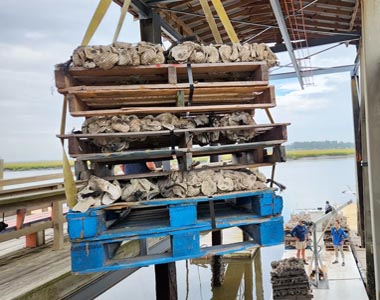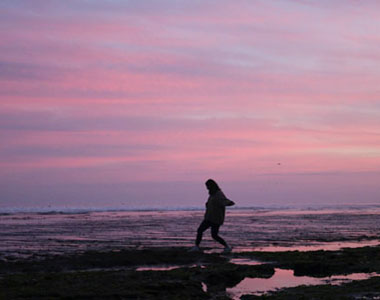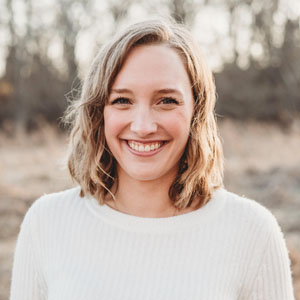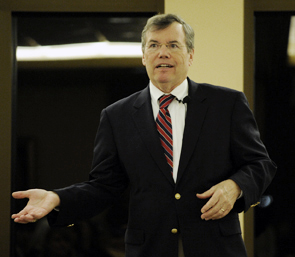 | | | As we end a tumultuous year for American campuses--despite widespread attacks on higher education, especially from Congress and the right--there is much to celebrate as students and faculty, along with community members and Rachel Carson Council activists nationwide, have all contributed to significant wins for the environment and climate justice in 2023. And with groundbreaking environmental research and advocacy accelerating at colleges and universities, we are leaving this year excited about what’s to come.  Recently, we have seen a number of universities, including the University of Pittsburgh, Georgia Southern University and East Carolina University, deploy environmental research and apply for grants to help the communities that surround them. This is especially promising, as in many cases universities can and have harmed the communities around them, rather than providing positive benefits. At Duke, Cape Fear Community College, Carteret Community College, ECU, North Carolina State University, North Carolina Agricultural and Technical State University, and the Research Triangle Institute, researchers and scientists are applying to create the North Carolina Ecosystem Technology (NCET). This project “…would network across universities and partner with businesses, nonprofits and other community entities to conduct research and bottom-up innovation. As a result, communities would be more resilient, workforces diversified and engaged and regional economies strengthened.” And, in a forward-looking project at Georgia Southern University, researchers have partnered with the popular boat engine maker Yamaha to build oyster reefs on Georgia’s shoreline. Recently, we have seen a number of universities, including the University of Pittsburgh, Georgia Southern University and East Carolina University, deploy environmental research and apply for grants to help the communities that surround them. This is especially promising, as in many cases universities can and have harmed the communities around them, rather than providing positive benefits. At Duke, Cape Fear Community College, Carteret Community College, ECU, North Carolina State University, North Carolina Agricultural and Technical State University, and the Research Triangle Institute, researchers and scientists are applying to create the North Carolina Ecosystem Technology (NCET). This project “…would network across universities and partner with businesses, nonprofits and other community entities to conduct research and bottom-up innovation. As a result, communities would be more resilient, workforces diversified and engaged and regional economies strengthened.” And, in a forward-looking project at Georgia Southern University, researchers have partnered with the popular boat engine maker Yamaha to build oyster reefs on Georgia’s shoreline. And, in further positive news, a major survey by the American Association of Colleges and Universities (AAC&U) shows that, unlike right-wing members of Congress pushing an anti-college message, American employers decidedly prefer to hire college graduates with wide exposure to different viewpoints and disciplines.  That is no surprise to the RCC as we highlight in this December issue the outspoken and informed viewpoints and opinions of RCC’s National Environment Leadership Fellows ranging from Molly Herring’s lyrical and Rachel Carson-like exploration of tidal pools to Suzanna Schofield’s exposé of how oil companies are greenwashing their continued drilling for oil and gas. That is no surprise to the RCC as we highlight in this December issue the outspoken and informed viewpoints and opinions of RCC’s National Environment Leadership Fellows ranging from Molly Herring’s lyrical and Rachel Carson-like exploration of tidal pools to Suzanna Schofield’s exposé of how oil companies are greenwashing their continued drilling for oil and gas.
As we continue to tackle climate change and head into an election year where climate and democracy itself will be on the ballot, it will be an all-hands-on deck job. We will need a truly diverse community of students, faculty, staff, and some outspoken administrators to literally rally the nation. That is the goal of the Rachel Carson Council Campus Network of which you are an essential part. In the new year, join with us (and encourage those students, faculty, and community members who share our vision) to sign up with us. We are creating a community and an increasingly influential force for positive change in 2024 and beyond. That is the real and lasting legacy of Rachel Carson. Mackenzie Kirschbaum, Associate Director, Civic and Campus Engagement. | | | | | | | |  Mackenzie Kirschbaum, M.S., is the Associate Director of Civic and Campus Engagement for the Rachel Carson Council. An advocate for environmental justice, climate change and policy, Mackenzie works to combine science, justice, and policy to advocate for imaginative solutions to environmental challenges. Mackenzie Kirschbaum, M.S., is the Associate Director of Civic and Campus Engagement for the Rachel Carson Council. An advocate for environmental justice, climate change and policy, Mackenzie works to combine science, justice, and policy to advocate for imaginative solutions to environmental challenges. | | | | | | Where is Noise Pollution the Worst? Redlined Neighborhoods Nearly all of them are subject to noise levels linked with hearing loss, a study shows. At the height of the Great Depression, when home foreclosures in the United States soared to 1,000 per day, the federal government adopted programs to keep people in their homes and make mortgages more affordable — just not for everybody. To determine who would get assistance, the Home Owners’ Loan Corporation, created as part of President Franklin D. Roosevelt’s New Deal, mapped out cities across the country in the 1930s. | | | | | | | | Survey Finds Employer Confidence in College Grads American Association of Colleges and Universities report finds employers see value in degrees and favor graduates who’ve been exposed to a wide range of viewpoints. Most employers have confidence in a college graduate’s ability to succeed in the workforce. They also value degrees from institutions that expose potential employees to a wide range of viewpoints. Those are two of the biggest takeaways from a report released today by the American Association of Colleges and Universities. | | | | | | | | Pitt Study Identifies Pollutants in Streams That Feed Into Pittsburgh’s Three Rivers Many Pittsburghers know that the city’s three rivers are cleaner than they were at the height of its steelmaking heyday, yet still suffer from serious contamination. But what about the many streams in the area that feed into those rivers? The Pittsburgh Water Collaboratory at the University of Pittsburgh published a study this month that looked at more than three dozen possible pollutants at 25 different tributaries and sewage outfalls. | | | | | | | | Grant Could Spur Coastal Eco-tech Hub Similar to Triangle A team of North Carolina scientists and researchers have less than two years to develop a proposal that will convince the National Science Foundation that eastern North Carolina is ripe to become an engine of innovative ecosystem technology that could advance a new workforce and a resilient and sustainable economy. If the North Carolina Ecosystem Technology, or NCET, project is chosen, an infusion of $160 million will pour into the region over the next 10 years. | | | | | | | | How Much Carbon Can Oysters Store? Scientists Are Trying to Find Out. On a sunny day this fall, two Georgia Southern University grad students stood waist-deep in the North Newport River near St. Catherine’s Island on Georgia’s coast, while their professor and a team from the Georgia Department of Natural Resources used a winch to lower pallets full of oyster shells into the water. The students guided the pallets into place on the muddy river bank. Those pallets, piled with shells, will provide a hard surface for baby oysters to latch onto. | | | | | | | | Bird Feeding is Important to Another Species: Humans Bird feeding’s benefits to people should play a role in public guidance and policy, according the author of a new paper on the practice. “Wildlife agencies and others making decisions on managing bird feeding need to be considering not only what the science is behind what’s going on with birds, but also the science behind what’s going on with people,” says Ashley Dayer, associate professor in the department of fish and wildlife conservation at Virginia Tech and lead author of the paper in People and Nature. | | | | | | | | Karen Warren: Keeping the Legacy of Rachel Carson Alive Through Ecofeminism As we advocate for continuing Rachel Carson’s legacy as contemporary environmentalists, it is essential to become familiar with the female environmental leaders who came after her time. One incredibly influential leader in the ecofeminist movement, or the examination of gender and the environment, is the environmental philosopher Karen Warren. An examination of her life and work can help each of us to be genuine torchbearers of Carson’s legacy and continue to keep feminism in our environmental action. | | | | | | | | | | When Climate Action Becomes Too Much: Mental Health, Climate Activism, and Community College is already a pretty stressful place. Seen as a period of transition, college students are often experiencing independence for the first time, becoming who they want to be in the world. However, this can be exhausting. Coupled with the effects of Covid-19, extreme social injustice and turmoil, and the constant threat of climate change, colleges are facing a mental health crisis. | | | | | | | | Casting Away the Sins of Indifference: Reverse Tashlich and the Environmental, Spiritual New Year The Jewish calendar starts from the beginning every year in the fall. The new year is marked by a month full of holidays. The first two are marked by the theme of repentance and forgiveness. Rosh Hashanah, which literally means “Head of the Year,” is known as the day in which God remembers all of the actions which any human being has done in the past year and measures their merit. | | | | | | | | Rachel Carson and the Lure of Tidepools My Uber pulled up to a little blue house on a cliff-side street, and I popped open the door to inhale the familiar West Coast perfume medley – forest fire smoke drifting in from the North, sweet eucalyptus, and a bit of fish. I returned to the little blue house after Thanksgiving break, which I spent wrapped up by the fireplace with siblings and dogs in the cold humid jaws of Virginia. I had made it home just in time for the East Coast leaves to play the last song of their encore and was grateful to glimpse the fiery orange and bright yellow exit of autumn. | | | | | | | | Natural Gas: A Greenwashed Killer Liquified natural gas is low-carbon, clean, responsible, and will transition the world to net zero emission. Or so says ExxonMobil, Chevron, Shell, fossil fuel companies and their supporters. The term “greenwashing” was first used by Jay Westerveld in 1986 to draw attention to misleading claims by the hotel industry to their customers; saving the environment was a false cover for promoting the reuse of towels when the primary motive was to cut costs. Greenwashing can be seen in labeling of products, advertisements, brand ambassadors, even where the product is being sold. | | | | | | | | The States Strike Back: How “Death Star Bills” Erode Local Autonomy Not so long ago, in a state legislature not too far away, politicians began crafting bills to crush local authority. Dubbed “Death Star bills” by critics, these legislative maneuvers are wielded by state governments to override the laws of local communities with dissenting viewpoints. Many of these laws have been passed by Republican state legislators to thwart the more progressive policies passed by local Democratic officials. | | | | | | | | The One Health Approach is Key to Climate Justice When I was in 6th grade, I suddenly became quite ill. Every movement was painful as I became too fatigued to take part in my typical schedule. It would take over a month before I got the diagnosis that I was positive for Lyme disease. By this point, the bacterium had already taken a destructive course in my body. I would find myself at the beginning of a journey of chronic health issues that continue to this day, eleven years later. | | | | | | | | Are Campus Carbon Offsets Necessary? In the dynamic context of climate change, the role of carbon offsets is both a potential solution and a controversial topic. My recent selection to American University’s carbon offset advisory board offers a unique vantage point. The role is not just an accolade; it represents a growing trend among American universities toward active involvement in environmental sustainability, particularly among the student body. The commitment of American universities to sustainability and carbon neutrality is more than a trend; it’s a movement. | | | | | | | | Changing the Climate: The Hopes of Those Unseen and Unheard on Campus It’s crazy to think that a year ago, I decided to embark on an experimental journey to see ways to transform my school to become a beacon of campus sustainability. As the newly elected Speaker Pro Tempore (SPT) of the Undergraduate Senate at American University, I’m standing at a crossroads of opportunity and responsibility. It’s not just a title; it’s a chance to make a real difference. I’m an openly gay, disabled, and low-income student at AU holding this position, and I carry with me not only hope for a better campus but also the hopes of those who’ve felt unheard and unseen. | | | | | | | | Three-hundred-year-old Beaufort Faces Existential Threat In 2018, one of my best friends, Ashley, moved from her lifelong home in northern Durham to Beaufort, North Carolina, a beautiful coastal town with gorgeous views, a walkable historic district and a peaceful, slow pace of life. I visited on numerous occasions, enjoying the fresh seafood, taking trips to sea on her family boat and falling in love with the old-world, Southern charm of North Carolina’s fourth oldest town. | | | | | | | | Save the Date! 2024 Southeast Student Sustainability Conference Friday, February 23 - Sunday, February 25 University of Georgia - Athens, GA Open to all students, as well as faculty and staff that work with students. This annual conference brings together student leaders, sustainability interns, and faculty and staff advisers from around the region for a weekend of peer leadership training and collaboration. | | | | | | | | Bill to Hinder DEI Efforts at Ohio Public Colleges and Universities Lacks Necessary Support A Republican bill aimed at hindering DEI efforts at Ohio colleges and universities does not have the votes to move forward, the Associated Press reported. According to Republican House Speaker Jason Stephens, the bill – which aims to ban nearly all diversity and inclusion training requirements at Ohio’s public colleges and universities and bar public universities from taking stances on “controversial” topics – doesn’t have enough support in the state House. | | | | | | | | 1.5 Degrees Is Not the Problem As leaders around the world meet for the 28th time to address the climate crisis — this time in the United Arab Emirates, one of the world’s largest oil producers — they need to rethink this threat and some of the other central challenges of our times. Those other challenges include devastating losses of biodiversity and plastic pollution so widespread, it is now found on the world’s tallest mountain, in its deepest ocean trench and in our veins. | | | | | | | | US Students File Complaints Against Six Universities Over Fossil Fuel Investments Students at six universities filed legal complaints on Monday accusing their colleges of breaking a little-known law by investing in planet-heating fossil fuels, the Guardian has learned. Campus organizers from the University of Pennsylvania, the University of Chicago, Tufts University, Pomona College, Washington University in St Louis and Pennsylvania State University wrote to the attorneys general of their respective states to ask officials to scrutinize their universities’ investments. | | | | | | | | RCC prides itself on its National Campus Network of 66 colleges and universities. We are working to engage faculty members, students, and administrators in our efforts for a more just and sustainable world. With our growing fellowship program, our presence on campuses across the country has never been greater. Contact RCC today to bring our staff to your campus for lectures, workshops, or meetings to help find the best ways to engage your faculty and students in the efforts against climate change, environmental justice, and the work of the Rachel Carson Council. Campus Visits with RCC President, Dr. Robert K. Musil  RCC President & CEO, Dr. Robert K. Musil, a national leader in climate change, environmental justice and health is again available to book for in-person campus speaking events! Musil has been called “informative, challenging and inspirational all at once.” He is “motivational” with “intellectual depth” and “extraordinary impact.” RCC President & CEO, Dr. Robert K. Musil, a national leader in climate change, environmental justice and health is again available to book for in-person campus speaking events! Musil has been called “informative, challenging and inspirational all at once.” He is “motivational” with “intellectual depth” and “extraordinary impact.”
Dr. Musil is available for campus lectures and visits involving classes, meetings with campus and community groups, consultations with faculty and administrators, or for Earth Day, Commencement, and other special events. Stays range from one to three days. Reduced fees are in place for 2023-2024 and can be designed to meet reduced budgets. To arrange a campus visit with Dr. Musil, contact the RCC President’s Office at office@rachelcarsoncouncil.org. The RCC also offers talks, classes, and workshops on student engagement, activism, sustainability, and the RCC Fellowship program with, Director of Policy and Programs, Maya Cohn, Associate Director of Civic and Campus Engagement, Mackenzie Kirschbaum, Associate Director of Communications, Claudia Steiner. To arrange, contact Associate Director of Civic and Campus Engagement, Mackenzie Kirschbaum. | | | | | | | |  The Rachel Carson Council Depends on Tax-deductible Gifts From Concerned Individuals Like You. Please Help If You can. The Rachel Carson Council Depends on Tax-deductible Gifts From Concerned Individuals Like You. Please Help If You can. | | | |  Sign Up Here to Receive the RCC E-News and Other RCC Newsletters, Information and Alerts. Sign Up Here to Receive the RCC E-News and Other RCC Newsletters, Information and Alerts. | | | | | | | | | | | |